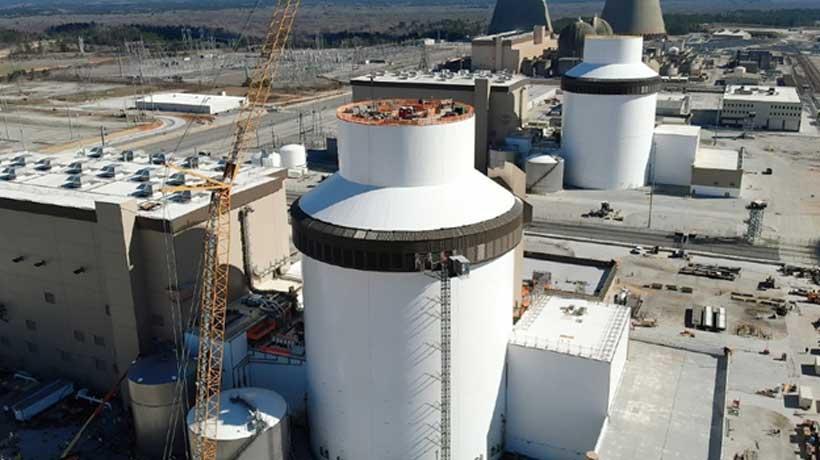By
William Zadrowski
Africa-Press – Kenya. The U.S. faces a persistent energy worry. Over the last few years, electricity demand has soared while U.S.-based energy suppliers have tried their best to keep up. While energy demand usually fluctuates throughout the year due to varying weather conditions and as the seasons change, the U.S. Energy Information Administration has shown that energy demand has steadily increased over the last fifty years. This can be attributed to population growth and the expansion of electricity production to meet society’s rapidly growing energy needs. While total electricity supply has adequately met the increasing demand over the last fifty years, the steadily increasing need for greater electricity places the U.S. in a vulnerable situation – one that can become susceptible to disruptions and shortages. The power sector already experiences immense strain during peak electricity consumption, namely during periods of intense weather such as heatwaves, snowstorms, and other weather phenomena. Considering the already-strained power sector in the U.S., further concerns about energy security in the U.S. center around the U.S.’s ability to create viable alternative energy solutions to ensure energy demand is met with adequate supply in the event of energy disruptions.
Nuclear Energy: Where It’s Been and Where It’s Going
The U.S.’s energy consumption portfolio consists largely of fossil fuels, accounting for more than eighty percent of the U.S.’s total energy consumption in 2023. Putting aside environmental concerns and considerations, the U.S. needs to invest more in another energy source capable of matching fossil fuel consumption in the near future. The best solution to this concern is nuclear energy. Although the U.S. consumes a significant proportion of available electricity from nuclear sources, roughly nine percent, nuclear energy has the potential to supplement the U.S.’s dependency on fossil fuels. The nuclear power industry cannot replace the need for fossil fuels, nor should it, but it would provide a safety net for supply chain disruptions and create alternatives to domestic energy consumption. This would prove especially important when considering the fragility of fossil fuel imports from foreign sources and the detriment to national security should there be a fossil fuel shortage in the U.S. and/or abroad. For this to happen, though, obstacles to nuclear power production must be overcome.
The U.S. already has nuclear energy production facilities and infrastructure to contribute to the existing energy portfolio, but not nearly at the same scale as fossil fuels. Why might this be? The short answer might be that there exist high initial costs to producing the infrastructure and plants required to make a nuclear reactor; however, the more likely reason would be widespread public opposition to and negative perception of nuclear energy production in the U.S. As many American citizens could point out, nuclear energy’s past is riddled with catastrophic meltdowns and lasting environmental impacts – things that pose obvious issues with public support investment into nuclear energy production. Notable incidents such as the Chornobyl meltdown, the Fukushima disaster, and the Three Mile Island Accident are well-known examples the public tends to associate with nuclear energy. The risk of a nuclear meltdown and severe environmental effects from accidents at nuclear power facilities are legitimate concerns and should not be ignored, however, nuclear power plant infrastructure and production technology have progressed significantly, partially influenced by these notable disasters to prevent similar accidents from ever occurring in the future. The nuclear power industry is not the same as it was some twenty years ago – it has seen significant increases in safety, regulation, and output optimization through new technologies. If the public can continue moving towards greater support for widespread nuclear power production, which appears to be trending that way in recent years, nuclear energy as the main source of consumer energy consumption in the U.S. is a real possibility.
Nuclear Energy as a Domestic Alternative to Fossil Fuels
Nuclear power production for energy’s sake is not the primary reason for the needed increase in nuclear power output. The need for increased output stems from the vulnerabilities in the U.S.’s energy supply and demand trends. Over the last few years, the U.S. has increased its crude oil exports and became a net exporter of crude oil in 2021, according to the U.S. Energy Information Administration. The U.S. being able to produce more crude oil than it consumes is great for energy security interests since it means the U.S. is less dependent on foreign oil, at least when compared to when the U.S. was a net importer of foreign oil. A decreased dependency on foreign fossil fuel imports provides a host of benefits to the U.S. One of these is the increased stability of fossil fuel supply. Considering that the U.S.’s largest source of crude oil and other fossil fuel imports are from areas of the world with complex geopolitical concerns, such as armed conflict, crude oil supply chains face the ever-persistent threat of disruption, whether from direct conflict or supply management used as a tool of coercion, For example, countries that export crude oil may use their production capabilities as a tool of coercion and pressure by restricting the supply of their exports to certain markets, often those that align with their political goals and ideals. This disruption of crude oil was seen following the start of the Russo-Ukraine war, where shortly after the invasion of Ukraine, Russian oil exports were drastically decreased to Western countries following embargoes and sanctions, namely put in place by those in the European Union (EU) and the U.S. These sanctions were designed to be a form of hard power in which the EU and the U.S. aimed to deter Russian aggression in hopes that it would accomplish a political end. Whether or not these sanctions are producing their desired effect is beside the point, but they resulted in the increase in crude oil prices in the U.S. and abroad, since a major exporter of crude oil, Russia, could not supply crude oil to the U.S. In terms of international diplomacy, the U.S. pursued an option to deal with Russia and its invasion of Ukraine which had immediate effects on the U.S. economy and the fossil fuel industry. Whether it proved successful for U.S. interests is yet to be determined, but one thing is certain – if the U.S. had a greater energy consumption available to consumers from nuclear power, crude oil prices may not have increased, as less crude oil and fossil fuels would be needed to power homes, businesses, and other everyday electricity consumers since nuclear power could have reduced the demand for fossil fuels.
Nuclear Energy and National Security
Increasing nuclear energy output not only provides energy security for domestic concerns but is imperative to stay on par with our adversaries. Two competing powers, the U.S. and China, are alike in a few ways. One of these ways is both countries’ need to keep up with energy demand with growing populations. Both countries seek to bolster their economies through domestically produced energy and decrease their reliance on other countries to provide power and expend energy for a variety of uses. China has figured out that investment into increasing its nuclear power output would be beneficial to solve domestic energy concerns and reduce the pollution problem it plagued itself with over decades of fossil fuel consumption. While the same motivations exist for China to expand its nuclear energy production as the U.S., China has begun this process to increase the number of nuclear reactors and construct the required infrastructure to handle the increase in power output from nuclear sources, while the U.S. has not. The U.S. does not want to be in a place where China has created the energy security it needs to supply its domestic energy needs mostly through the use of nuclear reactors, leaving its other energy sources such as fossil fuels for other energy expenditures. Such expenditures could be for manufacturing, where it could continue to surpass the U.S. in that respect, or even for defense, such as improving logistical support and enabling continued operation of assets requiring petroleum-based fuel. The U.S. would find it in its best interest to match China and bolster the nuclear power industry to achieve the same goals as, if not surpass China.
Overall, the U.S. would find it in its best interest to increase its nuclear power output for domestic use. Nuclear power is not and should not be used to replace fossil fuels completely. Rather, it should supplement fossil fuels and ease the burden of fossil fuel demand by providing an efficient alternative capable of meeting domestic energy demands, thus allowing the U.S.’s fossil fuel industry to provide domestic alternatives to foreign imports. The economy and energy industries would benefit, and the U.S. would improve its energy security, becoming more protected and less vulnerable to supply chain disruptions from external sources. The increase in nuclear power production would also help keep pace with China, providing the U.S. with the same strategic energy goals and ensuring China takes no advantage over the U.S. in the realm of energy security. Although the future of energy is not always clear, the prospect of nuclear energy as a national security interest and efficient domestic alternative to fossil fuels is certain.
moderndiplomacy
For More News And Analysis About Kenya Follow Africa-Press






